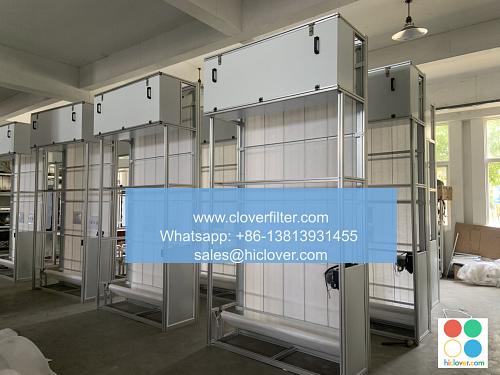Air Filter Quality Control in Residential Settings

Air filter quality control is a crucial aspect of maintaining clean and healthy indoor air in residential settings. With the increasing awareness of indoor air pollution and its impact on human health, it is essential to ensure that the air filters used in homes are of high quality and functioning effectively. In this article, we will delve into the importance of air filter quality control, its application areas, and the benefits of using high-quality air filters in residential settings.
Why is Air Filter Quality Control Important?
Air filters play a vital role in removing pollutants, allergens, and particulate matter from the air, thereby improving indoor air quality. However, if the air filters are not of high quality or are not functioning properly, they can actually worsen indoor air quality. This is because low-quality air filters can release harmful particles back into the air, reduce airflow, and increase energy consumption. Therefore, it is essential to ensure that air filters are of high quality and are regularly maintained to ensure optimal performance.
Application Areas of Air Filter Quality Control
Air filter quality control is essential in various application areas, including:
* Heating, Ventilation, and Air Conditioning (HVAC) systems: Air filters used in HVAC systems must be of high quality to ensure that they can effectively remove pollutants and allergens from the air.
* Air Purifiers: Air purifiers are designed to remove pollutants and allergens from the air, and high-quality air filters are essential for their effective functioning.
* Residential HVAC systems: Residential HVAC systems require high-quality air filters to ensure that the air is clean and healthy for occupants.
* Indoor Air Quality Monitoring: Air filter quality control is essential for indoor air quality monitoring, as it helps to identify areas where air quality can be improved.
Benefits of Using High-Quality Air Filters
Using high-quality air filters in residential settings offers several benefits, including:
* Improved indoor air quality: High-quality air filters can effectively remove pollutants, allergens, and particulate matter from the air, improving indoor air quality.
* Reduced energy consumption: High-quality air filters can help to reduce energy consumption by improving airflow and reducing the strain on HVAC systems.
* Increased durability: High-quality air filters can last longer than low-quality filters, reducing the need for frequent replacements.
* Reduced maintenance costs: High-quality air filters can reduce maintenance costs by minimizing the need for frequent cleaning and replacement.
* Improved health and wellbeing: High-quality air filters can help to reduce the risk of respiratory problems, allergies, and other health issues related to poor indoor air quality.
Conclusion
In conclusion, air filter quality control is a critical aspect of maintaining clean and healthy indoor air in residential settings. By using high-quality air filters and ensuring that they are regularly maintained, homeowners can improve indoor air quality, reduce energy consumption, and increase the durability of their HVAC systems. With the increasing awareness of indoor air pollution and its impact on human health, it is essential to prioritize air filter quality control and make informed decisions when selecting air filters for residential settings. It looks like you didn’t include a prompt. Could you please provide more details or specify what you would like to talk about or ask? I’m here to help with any questions or topics you’re interested in.

